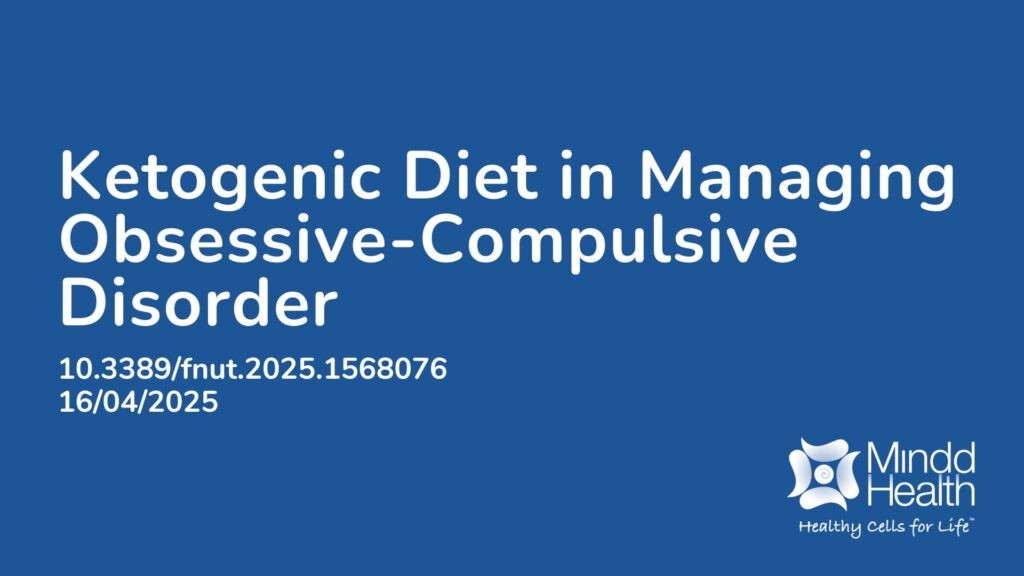Summary:
The ketogenic diet (KD), which limits carbohydrate intake to 20-50 grams daily with moderate protein and high fat, has gained attention for its potential in psychiatric treatment. Originally developed for epilepsy, where it shows effectiveness even when medications fail, the diet’s influence on brain metabolism has led to research on its use in various neuropsychiatric disorders. However, evidence for KD’s effect on obsessive-compulsive disorder (OCD) remains limited. Many psychiatric disorders, including OCD, share common metabolic disturbances such as mitochondrial dysfunction, oxidative stress, inflammation and imbalances in glutamate and GABA neurotransmitters. OCD is associated with mitochondrial abnormalities, elevated oxidative stress markers, increased neuro-inflammation, altered glucose metabolism, and an excessive glutamate/GABA ratio. The KD enhances mitochondrial efficiency, lowers oxidative stress, decreases inflammatory biomarkers, provides ketones as an alternative energy source to glucose, and increases GABA production. This case series examined three patients with OCD who adopted the KD. Using retrospective symptom assessments, all three showed remission and a 90.5% average symptom reduction. Notably, symptoms returned when patients deviated from the diet. These findings suggest KD may be a promising treatment for OCD by targeting its metabolic dysfunctions. Further controlled clinical trials are needed to confirm its efficacy and safety.
Abstract:
Introduction: The ketogenic diet is being explored as a therapeutic intervention for the treatment of neuropsychiatric disorders. Emerging research suggests that these conditions share common pathophysiologies, with the ketogenic diet showing promise in addressing these. This study reports three individuals who reduced their symptoms of obsessive-compulsive disorder (OCD) after adopting a ketogenic diet. Methods: Participants were recruited through personal and professional networks among the authors. Each patient was interviewed, and evidence of their mental health history was collected. Their OCD symptoms were retrospectively assessed before and after adopting the diet using the Yale-Brown Obsessive Compulsive Scale (Y-BOCS). Results: The three participants in this case series have all achieved remission of their symptoms and are medication-free. The diet implementation reduced their average Y-BOCS scores by 21 points, corresponding to a mean decrease of 90.5%. In all cases, deviations from the ketogenic diet resulted in a return of their symptoms.Conclusion: The ketogenic diet may be an effective treatment for obsessive-compulsive disorder. Its capacity to improve the metabolic dysfunction associated with OCD may target the underlying mechanisms of the disorder. Controlled clinical trials of the ketogenic diet as a treatment for OCD are warranted.
Article Publication Date: 16/04/2025
DOI: 10.3389/fnut.2025.1568076



